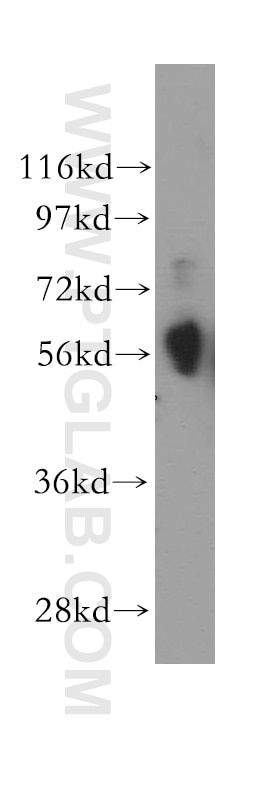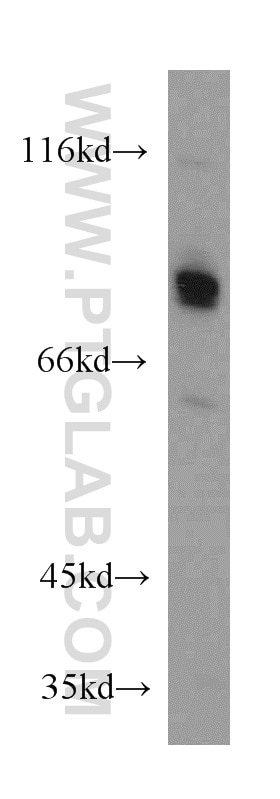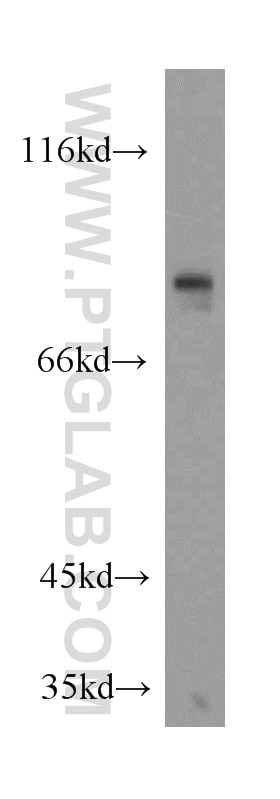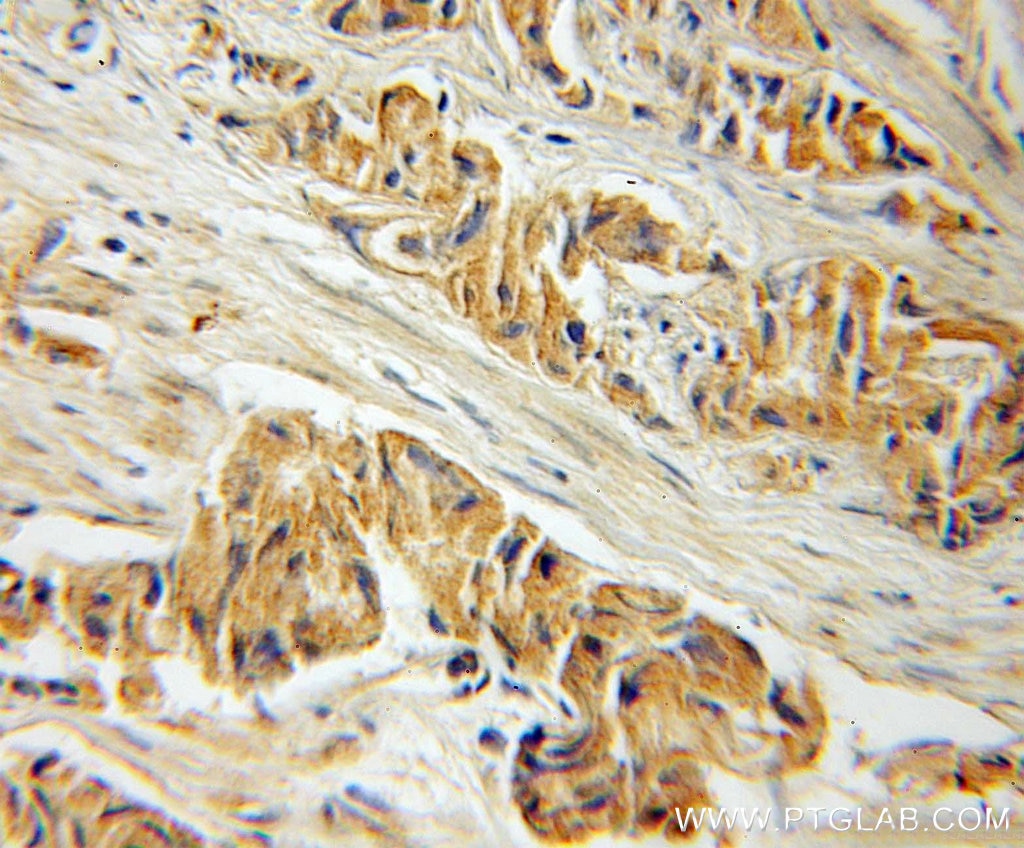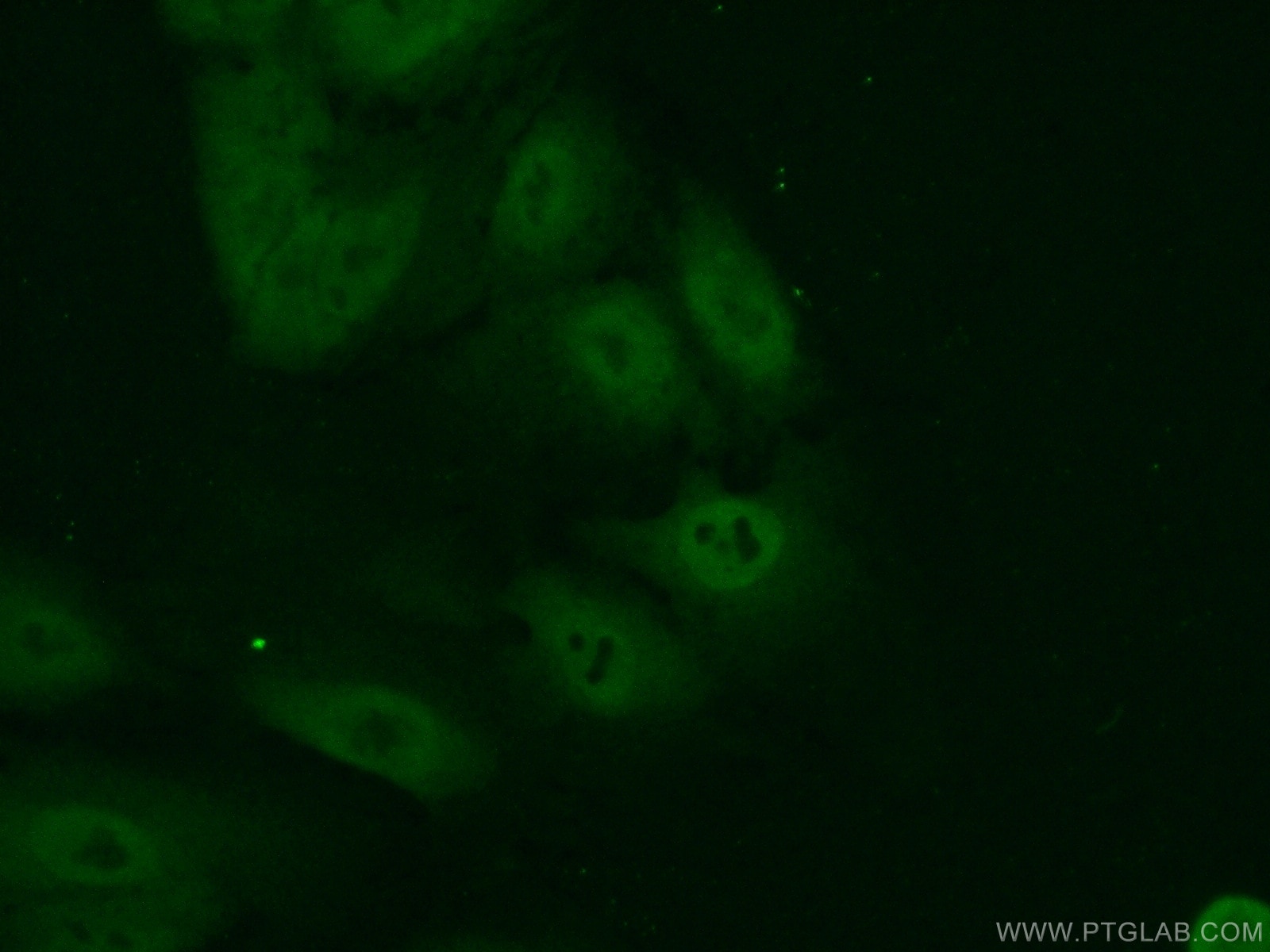Tested Applications
| Positive WB detected in | A549 cells, COLO 320 cells |
| Positive IHC detected in | human prostate cancer tissue Note: suggested antigen retrieval with TE buffer pH 9.0; (*) Alternatively, antigen retrieval may be performed with citrate buffer pH 6.0 |
| Positive IF/ICC detected in | A549 cells |
Recommended dilution
| Application | Dilution |
|---|---|
| Western Blot (WB) | WB : 1:500-1:1000 |
| Immunohistochemistry (IHC) | IHC : 1:20-1:200 |
| Immunofluorescence (IF)/ICC | IF/ICC : 1:50-1:500 |
| It is recommended that this reagent should be titrated in each testing system to obtain optimal results. | |
| Sample-dependent, Check data in validation data gallery. | |
Published Applications
| KD/KO | See 2 publications below |
| WB | See 10 publications below |
| IHC | See 4 publications below |
| IF | See 1 publications below |
Product Information
11235-2-AP targets CREB3L1,OASIS in WB, IHC, IF/ICC, ELISA applications and shows reactivity with human, mouse, rat samples.
| Tested Reactivity | human, mouse, rat |
| Cited Reactivity | human, mouse, rat |
| Host / Isotype | Rabbit / IgG |
| Class | Polyclonal |
| Type | Antibody |
| Immunogen | CREB3L1,OASIS fusion protein Ag1757 Predict reactive species |
| Full Name | cAMP responsive element binding protein 3-like 1 |
| Calculated Molecular Weight | 57 kDa |
| Observed Molecular Weight | 55-58 kDa and 84 kDa |
| GenBank Accession Number | BC015781 |
| Gene Symbol | CREB3L1/OASIS |
| Gene ID (NCBI) | 90993 |
| RRID | AB_2086042 |
| Conjugate | Unconjugated |
| Form | Liquid |
| Purification Method | Antigen affinity purification |
| UNIPROT ID | Q96BA8 |
| Storage Buffer | PBS with 0.02% sodium azide and 50% glycerol , pH 7.3 |
| Storage Conditions | Store at -20°C. Stable for one year after shipment. Aliquoting is unnecessary for -20oC storage. 20ul sizes contain 0.1% BSA. |
Background Information
Cyclic AMP-responsive element-binding protein 3-like protein 1(CREB3L1) belongs to a family of transcription factors that are synthesized as membrane-bound precursors in the endoplasmic reticulum (ER) and then transported to the Golgi where they are activated through regulated intramembrane proteolysis (RIP). Also it participates in ER-stress response in astrocytes in the central nervous system. It may has a role in gliosis, and involves in activation of transcription through box-B element but not CRE. CREB3L1 acts as a transcription repressor in proliferation of virus-infected cell. The full-length precursor form (approximately 84 kDa) of CREB3L1 and the matured form of CREB3L1 is 58 kDa. (PMID: 20668028)
Protocols
| Product Specific Protocols | |
|---|---|
| WB protocol for CREB3L1,OASIS antibody 11235-2-AP | Download protocol |
| IHC protocol for CREB3L1,OASIS antibody 11235-2-AP | Download protocol |
| IF protocol for CREB3L1,OASIS antibody 11235-2-AP | Download protocol |
| Standard Protocols | |
|---|---|
| Click here to view our Standard Protocols |
Publications
| Species | Application | Title |
|---|---|---|
Epigenetics OASIS/CREB3L1 is epigenetically silenced in human bladder cancer facilitating tumor cell spreading and migration in vitro. | ||
Endocrinology OASIS/CREB3L1 induces expression of genes involved in extracellular matrix production but not classical endoplasmic reticulum stress response genes in pancreatic beta-cells. | ||
Breast Cancer Res Epigenetic silencing of CREB3L1 by DNA methylation is associated with high-grade metastatic breast cancers with poor prognosis and is prevalent in triple negative breast cancers. | ||
PLoS One OASIS/CREB3L1 is induced by endoplasmic reticulum stress in human glioma cell lines and contributes to the unfolded protein response, extracellular matrix production and cell migration.
| ||
BMC Cancer CREB3L1 as a potential biomarker predicting response of triple negative breast cancer to doxorubicin-based chemotherapy. | ||
Front Endocrinol (Lausanne) Maternal Protein Restriction Induces Alterations in Hepatic Unfolded Protein Response-Related Molecules in Adult Rat Offspring. |
